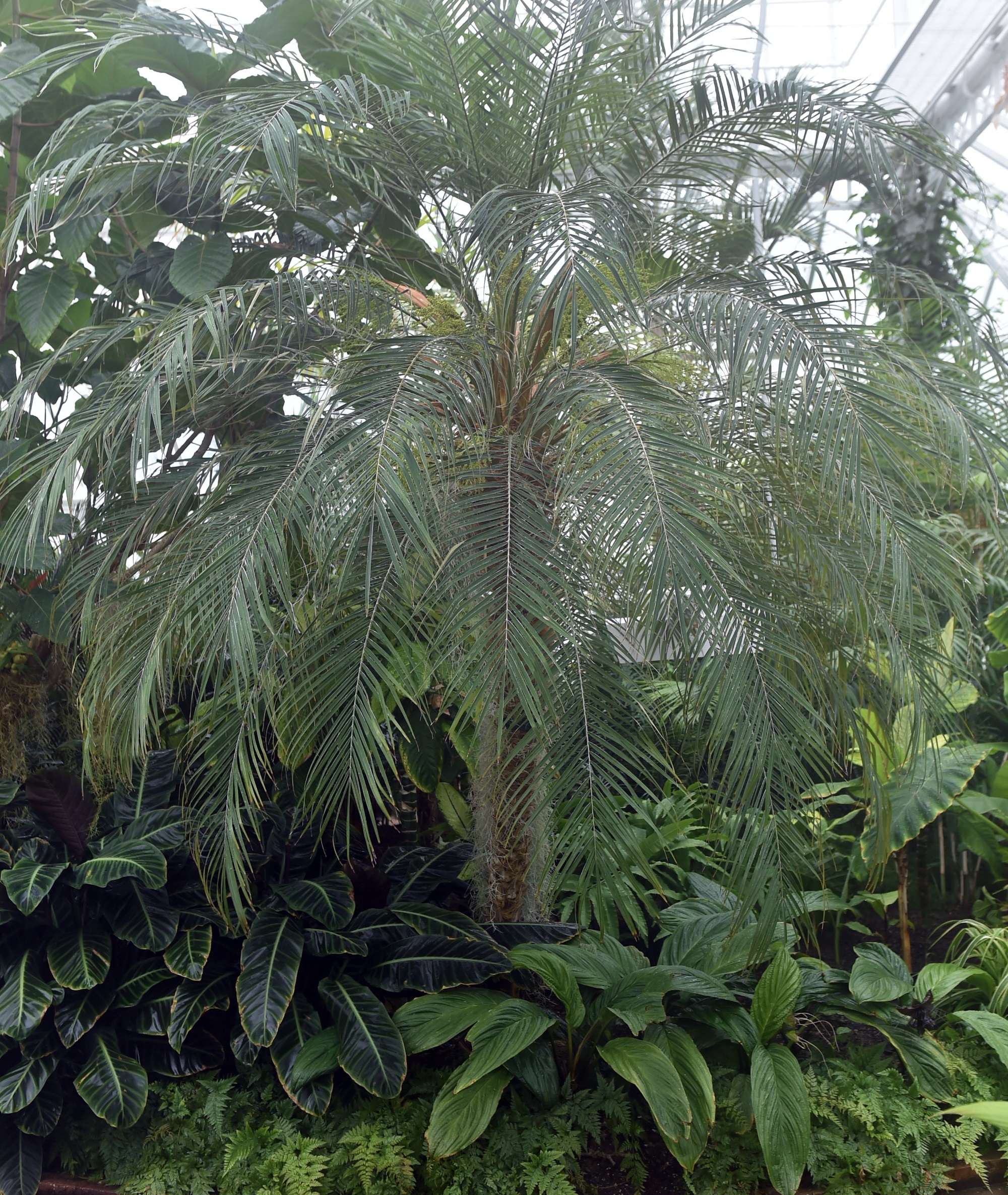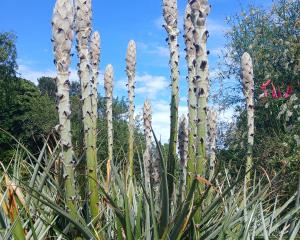
One little beauty with its petite figure - that stands alone at the focal point of the central bed - is the Phoenix roebelenii, commonly known as the pygmy date palm, a dwarf palm species.

This small palm with its slender trunk, varies in height anywhere between 2m and 7m, and is quite charming and seductive with its dense crown of graceful arching fronds.
But don’t be fooled by its appearance, this palm produces strong, spiny thorns on the leaf stem close to the truck that are very sharp and poisonous.
Creamy-yellow flowers appear in clusters that protrude like a bird’s crest.
This palm species is dioecious, so needs both male and female plants present in order to produce viable seeds.
That’s not going to happen here with just a single female plant. Nevertheless, our little beauty still gifts us many showy clusters of small, red then black fruits after flowering right through to winter.
The pygmy date palm thrives in a range of growing conditions from tropical paradises to arid oases.
This species is renowned for its robust nature and low maintenance requirements, making it an excellent choice for both outdoor and indoor landscaping such as our Winter Garden.
• Garden Life is produced by Dunedin Botanic Garden. For further information contact Ben Xie.












